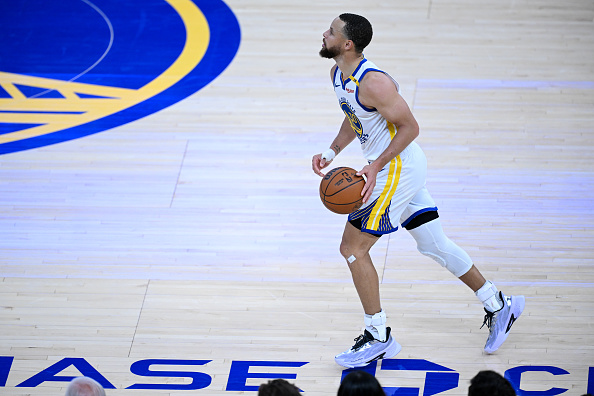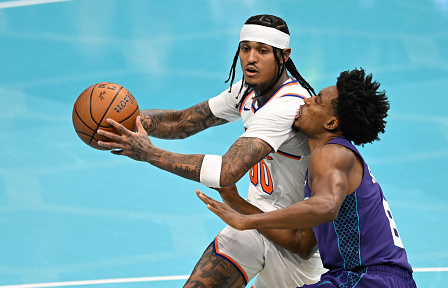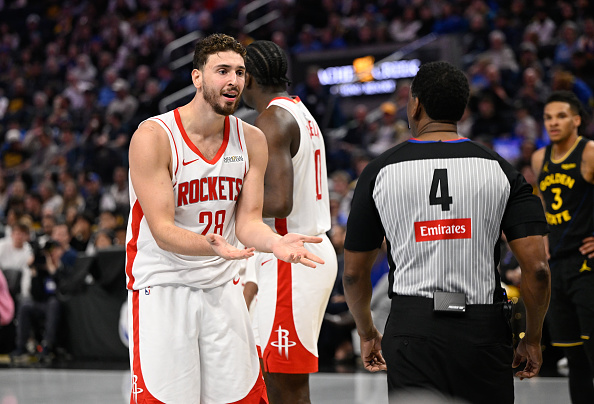Josh Elias | June 9th, 2019
The Toronto Raptors are just one game away from potentially being NBA Champions, and that’s great news for basketball. Whenever a new team takes over the reins of the league (which, don’t get me wrong, is still far from a guarantee still), it is, but now it’s a whole new country.
Now, Canada’s had a rocky relationship with basketball over the years, which is really a shame when you consider the sport was invented in the first place by a man from Ontario.
It might not be widely known that, in fact, Toronto had an NBA team before the NBA even technically existed. The 1946-47 BAA season is officially considered the first season of the NBA, and the Toronto Huskies participated in that year. In the process, they had the first ever international player, Hank Biasatti. Biasatti was an Italian-born Canadian 5’11” point guard, and he played just six games and scored just six points.
The Huskies, as a franchise, didn’t last much longer in the NBA than Biasatti did. After losing over $100,000 in a year, they were shut down. NBA Basketball wouldn’t return to Canada for 48 years.
As the Canadian team disappeared, the players’ disappearance would soon follow. Incredibly, we went a full 25 years, between the medical retirement of Bob Houbregs in December 1957 and the lone season Jim Zoet played in 1982-83, without a single Canadian in the league.
The Vancouver experiment clearly didn’t work out and was quickly given up on, and even the Raptors themselves failed to voluntarily draw anywhere near the talent that the fourth-biggest market should draw.
In fact, Toronto has signed just three former all-stars throughout their history, and they were each far from their respective primes – Alvin Robertson, who hadn’t played a game in over two and a half years thanks to injuries; Mark Jackson, who was 12 years removed from his lone all-star appearance; and Jamaal Magloire, who hadn’t been his team’s starting center for six years. For comparison, the Los Angeles Lakers have signed four former all-stars in the last three years.
And it’s not just within the NBA that they’ve struggled – The last time Canada’s national team medaled in the Olympics? 1936.
It seems like the perfect twist of irony that this was supposed to be Canada’s golden generation of talent. Andrew Wiggins, Tristan Thompson, Cory Joseph, Anthony Bennett, Nik Stauskas, Myck Kabongo, Tyler Ennis, and Khem Birch were all expected to change the game and develop Canada into the U.S.A.’s main competition.
Not a single one of those players developed as expected.
But none of that matters, because Canada’s only NBA team is one of the two teams left standing.
Which brings us to Chris Boucher.
Boucher might not seem like anything special, and in many respects, he isn’t.
But the one thing that is special about him – Toronto is Canada’s Team, and Boucher is their only Canadian player.
You might assume that, as the lone team outside of the United States, they might go out of their way to pick up foreign players – particularly Canadians – on their team. But that’s largely not the case. Other than Boucher, Magloire, Bennett, and Joseph are the only Canadians to have put on the red, black, and silver.
Boucher might get the honor of being the first one to wear it as a champion.
He was actually born on the small island country of Saint Lucia, but moved to Montreal as an infant. He grew up in poverty in a broken home, and by 16 years old he had flunked out of school and was working as a cook in a restaurant.
His basketball background was in streetball, a rarity in the current analytic-driven NBA compared to last decade. He played hockey and soccer from a young age, but he didn’t hit the hardwood at an organized level until the age of 19. Throughout his life, his living situation had led to malnourishment, and when he started playing, he was roughly 6’8″ and 150 lbs.
But a year later, he’d proven his talent enough that he was playing at a junior college level.
By his sophomore year, he played so well that Oregon assistant coach Mike Mennenga called him “the player of the year in all of basketball”. He won NJCAA Player of the Year with dominant averages of 22.5 points, 11.8 rebounds, and 4.7 blocks on 62.7% shooting from the field and 44.4% from three-point range.
Despite that, he wasn’t courted by any elite programs. His frame, while improved from two years prior, was still seen as somewhat of a risk by some coaches, and so he was ranked just the ninth-best JuCo recruit despite his season, and was mostly recruited by middle-of-the-road Power Five programs.
He chose Oregon.
In his very first game against Jackson State, he already showed what he was capable of. In just 16 minutes, he scored 10 points (including 2-3 shooting from behind the arc) and controlled the entire defensive end of the floor, ending the game with five blocks and two steals.
Two weeks later in a game against Arkansas State, he had nine blocks. By season’s end, he finally received his well-earned recognition. Boucher was named Honorable Mention All-Pac-12 and Pac-12 First-Team All-Defense, while leading the conference in blocks and placing in the top twelve for both rebounds and offensive rebounds. He became the fifth-ever player (after Robert Horry, Donyell Marshall, Eddie Griffin, and K.J. McDaniels – Jaren Jackson Jr. has also joined that group since) to make 35+ threes and block 100+ shots, and, along with Dillon Brooks, led the Ducks to their best record since 1938-39 on their path to the Elite Eight.
As a senior, things went similarly. The team’s record even improved, he repeated both All-Conference accolades, and led the Pac-12 in blocks per game again. He ended his time at Oregon with the second-most blocks in school history (especially incredible considering he was only there two years), the school effective field goal % record, and the school PER record.
But while they made their first modern-era Final Four, he didn’t get to be a part of it.
During the Pac-12 tournament, Boucher came down from a rebound and an opposing player fell on his leg as he hit the floor, and that was the end of his season and his college career. The next morning, it was revealed that he had torn his ACL and his time playing for Oregon was over.
Unable to work out for teams during his injury, a combinations of concerns about his recovery and, again, worries about his frame – he measured in at the draft combine at 6’9.5″ and 182 lbs – meant he would go undrafted.
The Golden State Warriors took a flyer on him though, and signed him to a two-way contract. It was a long road to recover, but by January he was playing basketball again for the Warriors’ G League affiliate.
In March, he finally looked like he was fully healthy and was consistently putting up 20-10 games with multiple blocks, so Golden State called him up. He played a grand total of 1:17 with the Warriors, missing a three-pointer and grabbing a rebound. He got a ring for that.
In doing so, he broke a 52-year-old record that no one’s heard of and no one cares about: the least time played while winning a championship, formerly held by Ron Watts of the 1965-66 Boston Celtics.
Two weeks after they won the title, Golden State waived Boucher.
This fall, he secured another two-way contract, this time with his home country’s Raptors. By December, he was consistently getting a few minutes of game time when they underwent a string of injuries to rotation players, and he was upgraded from a two-way deal to a full-time contract on February 10, shortly before the trade deadline.
Meanwhile, he was tearing it up when he was stuck down in the G League. He had over 30 points ten times, over 15 rebounds five times, and ten games with five or more blocks. Two games headline them all – in a December loss, he scored 47 points in a game, adding eight rebounds and nine blocks, and in one of the last games of the season, he had 30 points, 17 rebounds, and six blocks. He won NBA G League MVP and Defensive Player of the Year, the first-ever G League player to win both.
Even in the NBA, he’s done great. Averages of 3.3 points and 2.0 rebounds may not look great at first glance, but when you take into account his limited minutes, you’ll notice that he has 20.5 points, 12.4 rebounds, 5.3 blocks, and 1.3 steals, once translated to per 36 minutes stats. He’s quietly been an impact player in the short time he has been on the floor.
Come playoff time though, he finds himself out of the Raptors rotation, for obvious reasons. Teams need to cut their rotations down as the competition intensifies, and Boucher has been an unfortunate casualty of that. Boucher has played 4:04 in two games this postseason, both against the Bucks.
But I’m not just going to stand idly by and watch the Raptors win a championship without putting their only Canadian player on the floor during the NBA Finals. This is my petition to get Toronto to put Chris Boucher on the floor for the last few seconds of their series-clinching game, if they do end up in that position.
Nick Nurse, I’m calling you out!
Follow Us on Twitter @thescorecrow
Follow Us on Reddit at u/TheScorecrow
Follow Us on Facebook at The Scorecrow
Follow Us on Instagram at The Scorecrow
Follow Josh Elias on Twitter @thejelias






